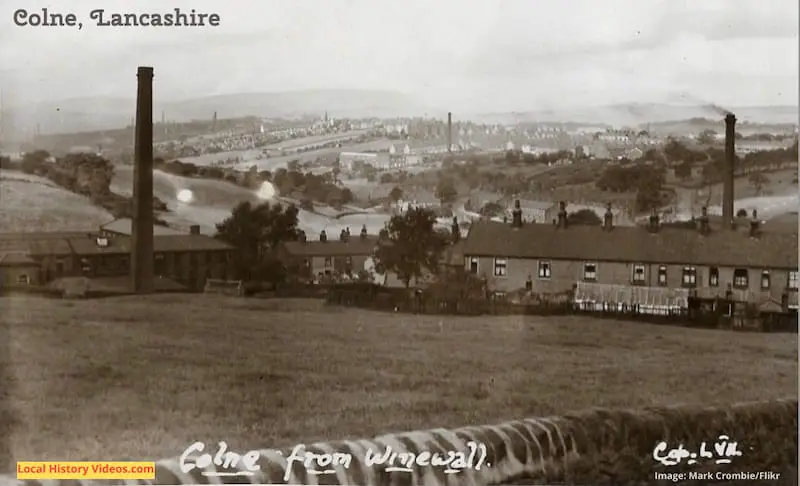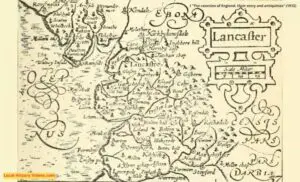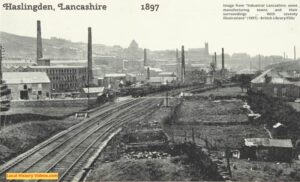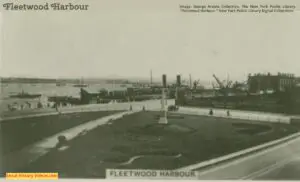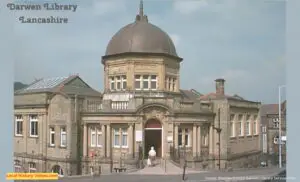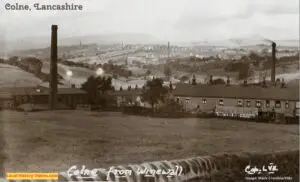Glimpse history through old images of Colne, Lancashire, in North West England, UK
Colne in 1972
When this footage was recorded in 1972, the market town was dominated by industrial buildings and very few cars were parked along the streets of terraced houses.
Colne (1972) – British Pathé on YouTube
Church Demolition 1984
In 1985, the Colne’s Trinity Baptist Church was demolished. It had been unused for several years and fell into disrepair, with the congregagtion having moved to the Sunday School buildings next door.
Colne Lancashire – Jill Pengelly on YouTube
Historic Book
Extract from
“The History of Co-operation in England: The constructive period”
by George Jacob Holyoake
Published in 1875
Page 255
“The difference between the Trade Unionist and the
Co – operative way of dealing with a strike is capable of
historic illustration .
In 1860 a famous strike took place
in Colne , Lancashire . The weavers were out for fifty
weeks and kept 4,000 looms idle .
Cogwheel , one of the
weavers , put their case very neatly thus : He said , In
Colne there are 4,000 looms . In East Lancashire there
are 90,000 looms . If the Colne Strike had not taken
place the prices all over East Lancashire would have been
reduced to the Colne standard , and therefore , East Lan
cashire saved money by contributing £ 20,000 to the Colne
Strike .
Dr. Watts put the Co – operative view of the
strike not less concisely thus : If the Colne people , instead
of going on strike for fifty weeks had kept at work and
lived on half wages , as they had to do during the strike ,
and had saved the other half , and if the East Lancashire
people had subscribed £ 20,000 , as they did towards keep
ing the Colne people on strike , the result at the end
of fifty weeks would have been £ 54,000 in hand , and at
£ 15 a loom that money would have set to work in per
petuity for the hands themselves 3,600 looms out of the
4,000 in Colne ! The self – same effort which threw them
into beggary would have raised them into independence . “
More about Lancashire
- Old Images of Lancashire, England
- Old Images of Skelmersdale, Lancashire
- Old Images of Haslingden, Lancashire
- Old Images of Fleetwood, Lancashire
- Old Images of Darwen, Lancashire
- Old Images of Colne, Lancashire
More about Lancashire’s local history resources
Back to Homepage

